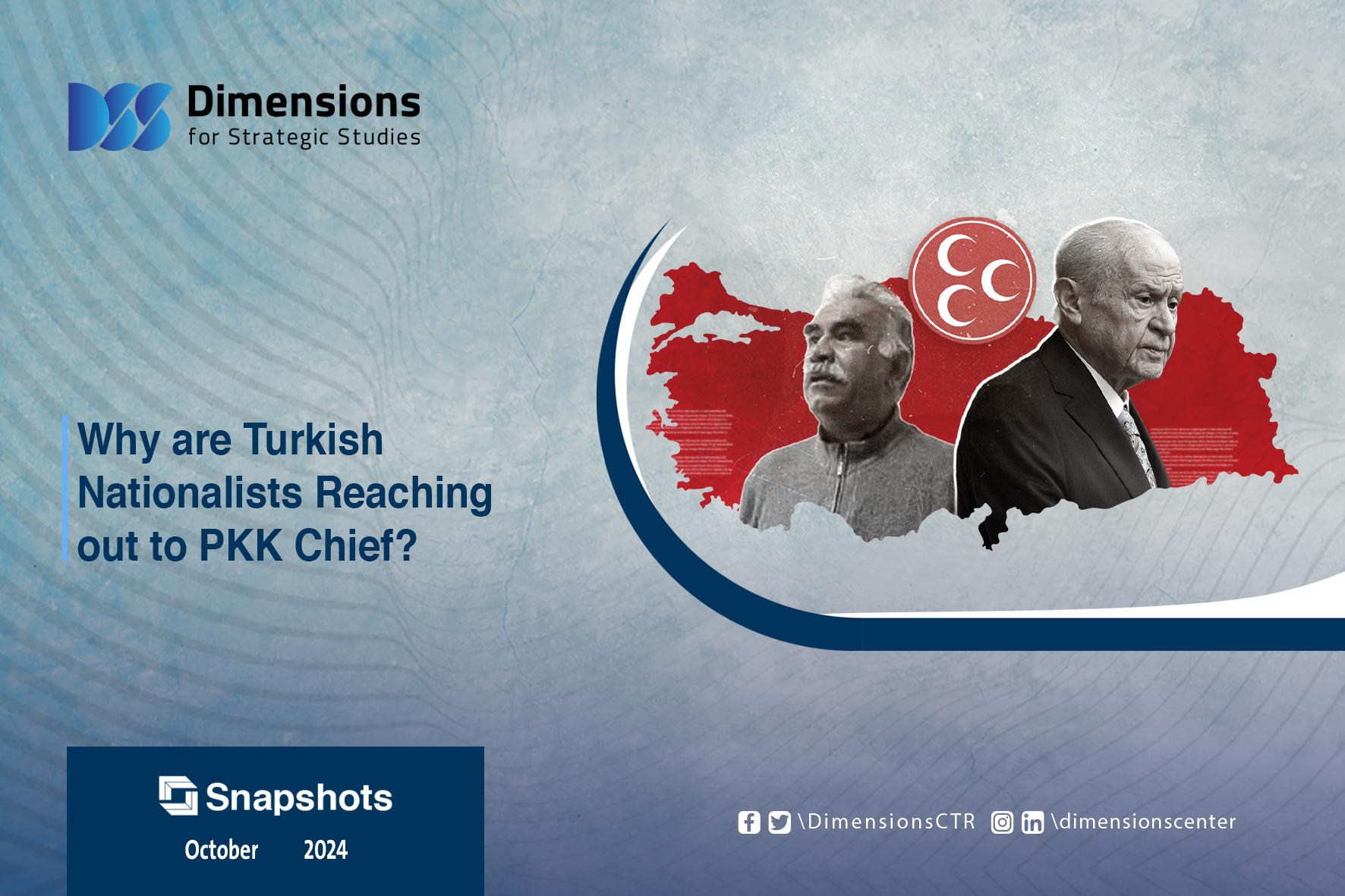
Why are Turkish Nationalists Reaching out to PKK Chief?
2024-10-245162 view
On 22 October 2024, Devlet Bahçeli, the leader of Türkiye’s Nationalist Movement Party (MHP) extended an unprecedented invitation to the jailed founder and leader of the Kurdistan Workers’ Party (PKK), Abdullah Öcalan.
Bahçeli called on the Kurdish leader to disband his party, disavow terrorism and present himself at the Turkish parliament for a meeting of the People’s Equality and Democracy Party (HDP).
Prior to his landmark statements, Bahçeli had already shaken hands with leaders and deputies of the HDP at the opening session of the Turkish parliament’s legislative year in early October, signaling a fresh approach by the Nationalist bloc towards Kurdish parties, whom Bahçeli had previously labeled as terrorists.
“This handshake represents our outstretched hand to the PKK, beckoning them to become part of Türkiye,” said Bahçeli. President Recep Tayyip Erdoğan praised his outreach, as an effort towards democratic strength and national unity, at a time when the republic faces rising threats to its security.
Owing to internal and external pressures, it is clear that the ruling coalition in Türkiye is seeking a new political approach. Both parties are showing marked flexibility towards the Kurdish bloc, seeking to limit confrontation with the PKK and its allied militants—while refraining from open internal attacks on the HDP.
Internal political pressure has pushed the ruling parties to try and regain the base of support they used to enjoy, especially in the case of the AKP. In Türkiye’s most recent municipal elections in early 2024, the party’s vote share declined to its lowest level in 20 years, coming in second to the Republican People’s party (CHP).
Years of economic crisis, political polarization and discord with Kurdish voters over military operations in southeastern Türkiye and Syria since 2015 have plagued the AKP, and been compounded by the party’s recent controversial alliance with the far-right Nationalist Movement Party. In this context, it seems that the ruling coalition is seeking to shore up broad support by reframing its stance on the Kurdish question.
On the international front, there is a palpable anxiety in Türkiye about a pan-regional escalation, and the rising possibility of a war against Iran after a vicious circle of military retaliation between Tehran and Israel threatens to spin out of control. At such a precarious time, internal reconciliation within Turkey could help isolate the country from surrounding conflicts and strengthen national unity, especially if all the main political parties can agree on the wording and contents of a new constitution.
Despite the new, positive framing, finding any new political consensus in Türkiye remains fraught with complex challenges. Most significantly, the PKK has been weakened by years of military operations, making the state unlikely to concede major concessions. Therefore, the PKK may see little advantage in joining any meaningful negotiations. Equally challenging is the decision by a key flank of the HDP to align with the Kemalist Republican People’s Party (CHP) in an effort to unseat the ruling coalition in upcoming votes, as they came so close to achieving their goal in recent municipal elections.





